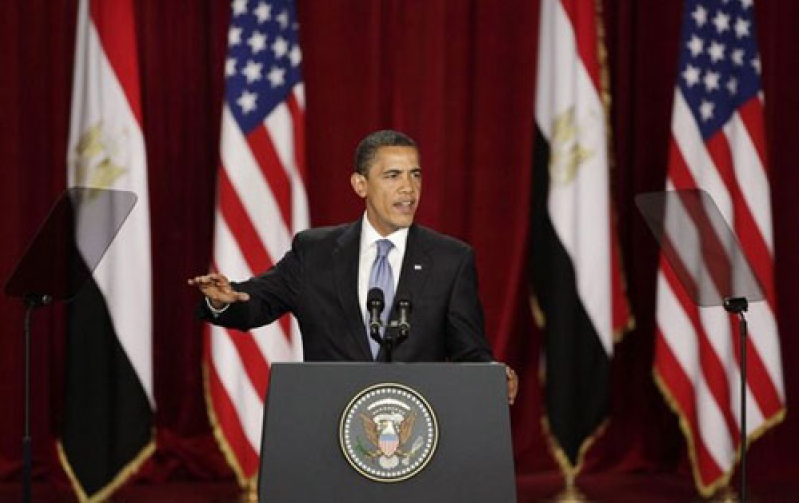
President Obama called on the Muslim world to respect people’s right to choose their religion in his Cairo address on Thursday.
The U.S. president, while being careful in his highly anticipated speech to show respect to Islam, made his case that Islam has a tradition of tolerance that he witnessed first-hand growing up in Indonesia – the world’s most populous Muslim country.
“People in every country should be free to choose and live their faith based upon the persuasion of the mind and the heart and the soul,” Obama said at Cairo University. “The richness of religious diversity must be upheld – whether it is for Maronites in Lebanon or the Copts in Egypt."
Rather than division, faith should actually bring people together, Obama argued.
“Freedom of religion is central to the ability of peoples to live together,” he said in a city considered to be the center of Islamic thought and culture.
To balance his call for greater religious freedom in the Muslim world, Obama said Western countries should also respect how Muslim citizens practice their faith. Personally, he aims to make it easier for Muslim Americans to donate to Islamic charities.
He called on the United States and Muslims around the world to stop defining their relationship by differences, but to forge a “new beginning” based on “mutual interest and mutual respect.”
Carl Moeller, president of Christian persecution watchdog group Open Doors USA, commends Obama for mentioning religious freedom in his speech. However, the religious freedom advocate pointed out that Obama failed to "elaborate" on the persecution of Coptic Christians in Egypt that he specifically mentioned, as well as the plight of Christians and other minorities living in Muslim countries.
"In summary, yes, we should go to the Muslim world. Open Doors founder Brother Andrew always says we in the West should reach out in love to Muslim," Moeller wrote in his column for The Christian Post. "But Islamic nations must treat believers – giving them complete freedom of religion – like they want countries in the West to treat Muslims."
"We also need to support, advocate and pray for those who are suffering under sharia law," he added.
According to Dan Gilgoff of U.S. News & World Report, the White House consulted American religious leaders, including a half dozen Muslims, on what to say in the Cairo speech. Muslim leaders encouraged Obama to speak directly about topics that make Muslims angry. They also advised him to invite an explicitly Muslim organization to cosponsor the speech, which the White House did by inviting the Muslim religious school Al Azhar University to cosponsor the event with Cairo University.
The Cairo speech is the highlight event of Obama’s Mideast trip this week that included a meeting with Saudi King Abdullah on Wednesday. The speech seeks to repair the United States’ relationship with the Muslim world, which has harbored resentment at America for its strong support of Israel, the wars in Iraq and Afghanistan, and its anti-terrorism policies.
During Obama’s meeting with King Abdullah, he was given the King Abdul Aziz Order of Merit, a large gold medallion on a thick gold chain that is the kingdom’s highest honor. Abdullah said it is only given to the “very few friends of the king” and called Obama a friend.
This isn't the first time Obama addressed Muslims. In April, he delivered a speech in Turkey where he said the United States is not at war with Islam. But the Cairo speech was a more significant and extensive address to the Muslim world.
On Friday, Obama will visit the Buchenwald Nazi concentration camp in Germany.







